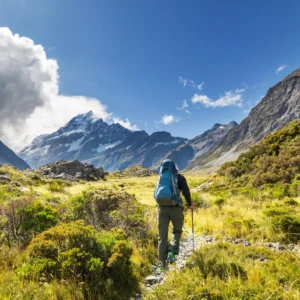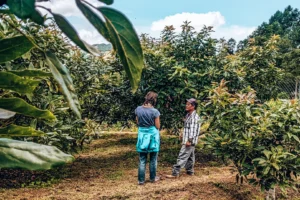Tourism connects us to new places, people, and cultures. But it also impacts the planet. Air travel, accommodations, and even the meals we eat on trips contribute to our carbon footprint.
Climate change threatens the natural wonders we cherish, from coral reefs to glaciers.
Reducing your travel carbon footprint doesn’t mean giving up trips. Instead, it’s about making eco-friendly choices that help reduce carbon footprint and benefit the planet and the communities you visit.
Here’s how you can travel sustainably and responsibly.
Understanding The Impact Of Your Travel On The Environment

Tourism contributes 8% of global carbon emissions. Air travel, food production, and accommodations are major contributors.
For instance, a single round-trip flight from New York to London produces over two metric tons of CO2 per passenger.
While travel has a significant impact, it also supports local economies and conservation efforts.
By adopting green travel habits, you can reduce carbon footprint and enhance your travel experiences.
Sustainable Travel Tips To Minimize Emissions
Rethink Air Travel
Air travel greatly contributes to travel emissions, but smarter choices can reduce its impact.
- Avoid short flights: Choose trains or buses for trips under 500 miles. These eco-friendly travel options are better for the environment and often less stressful.
- Book direct flights: Non-stop flights use less fuel because they skip extra take-offs and landings.
- Fly economy: Economy class maximizes passenger numbers, lowering the traveler’s carbon footprint.
Pack Light For Low-Impact Travel
Packing smarter reduces emissions. Heavier luggage means more fuel use across all modes of transport.
- Use lightweight luggage and versatile clothing.
- Bring reusable travel containers for toiletries.
- Rent bulky items like camping gear locally instead of bringing them.
By packing light, you contribute to eco-friendly travel habits that save energy and resources while helping to reduce carbon footprint.
Choose Sustainable Accommodations
Hotels and resorts significantly impact the environment. Many accommodations are now adopting green practices to reduce their carbon footprint.
- Stay in eco-friendly hotels that use renewable energy and recycle water.
- Use less energy during your stay. Turn off lights, unplug electronics, and adjust thermostats when not in the room.
- Consider homestays or smaller eco-lodges that use fewer resources than large resorts.
Choosing sustainable accommodations is an effective way to reduce carbon footprint during your travels.
Eat Local And Support The Community
Food production is responsible for a significant portion of emissions. Imported foods require long-distance transport and packaging, increasing their carbon impact.
- Opt for locally sourced meals to reduce your food’s carbon footprint.
- Shop at local farmers’ markets and enjoy farm-to-table dining.
- Avoid buffets, which often lead to food waste.
Supporting local cuisine boosts the economy of the communities you visit and fosters a sense of connection and responsibility. By choosing to eat locally, you actively contribute to the reduce carbon footprint efforts in your destination.
Slow Down And Stay Longer
Fast-paced tourism increases travel emissions. Instead of visiting multiple locations in one trip, spend more time at one destination.
- Take fewer trips each year but make them longer.
- Focus on meaningful experiences rather than rushing through a checklist of sights.
This low-impact tourism approach reduces emissions and fosters a deeper connection to the places you visit. By slowing down and staying longer at one destination, you can immerse yourself in the local culture and environment, leading to a more mindful and enriching travel experience.
Eco-Friendly Travel Practices While Exploring
Use Public Transport Or Active Travel Modes
How you explore your destination matters. Public and active transport options significantly reduce emissions compared to driving.
- Walk or cycle for short trips. These are the most environmentally friendly ways to get around.
- Use buses, trams, or subways instead of renting a car.
- If renting a vehicle, choose a hybrid or electric model.
Participate In Conservation Activities
Responsible tourism isn’t just about minimizing your footprint—it’s about giving back.
- Join cleanups at beaches, parks, or trails.
- Volunteer for tree planting or wildlife conservation programs.
- Choose ecotourism operators that fund conservation efforts.
These activities support local ecosystems and foster eco-conscious travel choices.
Buy Thoughtful Souvenirs
Souvenirs are part of the travel experience, but mass-produced items often harm the environment.
- Avoid cheap, imported goods.
- Support local artisans by purchasing handmade products.
- Choose practical souvenirs, like reusable bags or natural crafts, that you’ll use.
Shopping sustainably supports local economies and reduces waste while aligning with efforts to reduce carbon footprint.
Offsetting Unavoidable Emissions
Even with sustainable travel habits, some emissions are inevitable. Carbon offset programs allow you to balance this impact by funding green projects.
- Use a carbon calculator to measure your travel emissions.
- Support projects like reforestation, clean energy, or habitat restoration.
- Choose certified programs to ensure your contribution is effective.
While offsets don’t replace action, they complement your efforts to reduce carbon footprint and promote sustainability.
Protecting Future Destinations

Tourism can uplift communities and fund conservation projects, but only responsibly. Adopting eco-conscious travel habits helps protect the planet and ensures future generations can enjoy its beauty.
Small changes, like flying less or eating local, add up. These sustainable tourism practices lower your carbon footprint and inspire others to travel more responsibly.
Conclusion
Travel doesn’t have to harm the environment. Simple steps—like packing light, using public transport, and supporting local businesses—make a big difference. By reducing your travel carbon footprint, you protect the planet while enjoying meaningful adventures. Together, we can make tourism a force for good.









